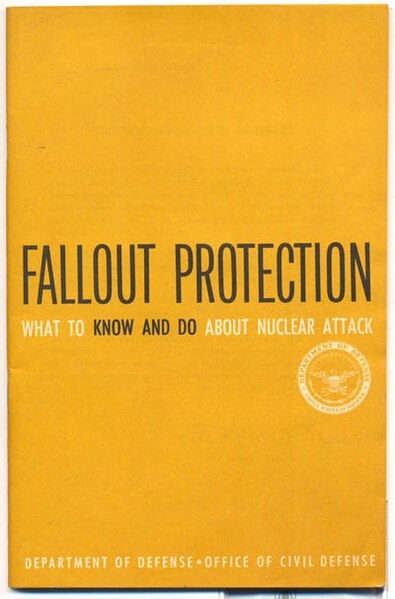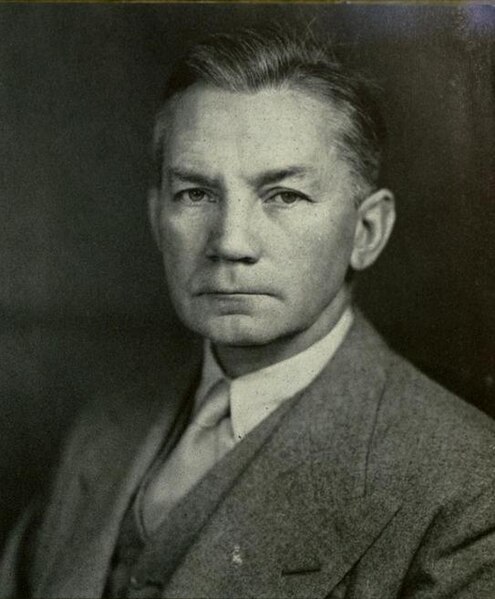Robert Strange McNamara was an American businessman and government official who served as the eighth United States secretary of defense from 1961 to 1968 under presidents John F. Kennedy and Lyndon B. Johnson. He remains the longest-serving secretary of defense, having remained in office over seven years. He played a major role in promoting the U.S.'s involvement in the Vietnam War. McNamara was responsible for the institution of systems analysis in public policy, which developed into the discipline known today as policy analysis.
Official portrait, 1961
President John F. Kennedy and McNamara, 1962
U.S. Secretary of Defense Robert McNamara with U.S. Air Force Chief of Staff General Curtis LeMay at The Pentagon on April 10, 1963. During World War II, McNamara served under LeMay's command as a statistician for the United States Army Air Forces.
United States Civil Defense booklet Fallout Protection, commissioned by McNamara
United States Secretary of Defense
The United States secretary of defense (SecDef) is the head of the United States Department of Defense, the executive department of the U.S. Armed Forces, and is a high-ranking member of the federal cabinet. The secretary of defense's position of command and authority over the military is second only to that of the president of the United States, who is the commander-in-chief. This position corresponds to what is generally known as a defense minister in many other countries. The secretary of defense is appointed by the president with the advice and consent of the Senate, and is by custom a member of the Cabinet and by law a member of the National Security Council.
United States Secretary of Defense
Donald Rumsfeld is sworn in as Secretary of Defense by Associate Supreme Court Justice Potter Stewart as U.S. President Gerald R. Ford and Chairman of The Joint Chiefs of Staff General George S. Brown watch at The Pentagon on November 20, 1975.
Department of Defense organizational chart (December 2013)
Image: James Forrestal Sec Of Def








